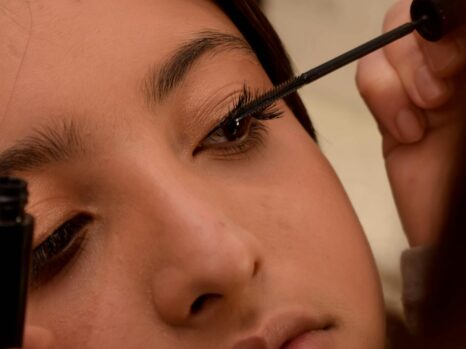The common problem of mature skin is dryness. Unfortunately, hydration isn’t enough. Do you know what treatments you should use to supply mature skin with what it needs? Learn the secrets of mature skin care and discover the tips for delaying ageing.
Many people are surprised after realizing that skin is categorized as mature after being 30 years of age. We keep thinking that even though we’re middle-aged, our skin is still young and taut, yet 30’s is the time when the ageing processes kick off:
- collagen and elastin (scleroproteins) production in skin decreases
- the levels of hyaluronic acid drop, which results in hydration loss
- fine lines and pigmentation spots appear
How to take care of mature skin?
One thing that mature skin needs most is cell renewal. You can help the skin perform this perfectly natural – yet disturbed due to the passing time – process by visiting a beautician to get hyaluronic acid or botulinum toxin injections. However, before doing so, it’s worth trying some natural treatments serving mature skin. Undoubtedly, this is a far cheaper solution, it’s simpler (can be introduced to daily ritual) and still it’s equally effective as the in-salon solutions.
First, it must be realized that skin remains healthy if it’s provided with three basic things: moisturizing, nourishment and protection. Once supplied with all essential nutrients required for repair and regeneration, skin will not only restore its lost beauty fast but also it will keep the youthful-looking appearance for longer. What are the essential nutrients in particular that you should consider beneficial?
Nutrients mature skin needs
- Hyaluronic acid – the strongest moisturizer of all, which are the substances able to improve hydration in skin and bind water inside. It’s absolutely essential for mature skin because hyaluronic acid maintains hydration. If it wasn’t for hyaluronic acid, skin wouldn’t remain supple.
- Retinol – the pure form of vitamin A that can be often found in professional products dedicated specifically for mature skin. It helps remove dead skin cells and improves skin’s resilience because retinol promotes production of proteins responsible for keeping skin taut, supple and smooth.
- Coenzyme Q10 – also known as ubiquinone, which is one of the most common ingredients used in the majority anti-ageing products. It promotes skin self-repair, speeds up tissue healing and reduces wrinkles.
- Collagen – together with elastin they make a duo of proteins responsible for keeping the skin taut. They create a kind of scaffolding to prevent sagging. This is why mature skin should be supplied with collagen in order to delay wrinkles and remain youthful-looking.
- Vitamin C – underestimated when it comes to its skin benefits, vitamin C is necessary for skin because it protects it from the Sun, leaves it glowing and even-toned. Ascorbic acid also brightens discoloration that appears on the face skin with age.
What skincare products to use to improve mature skin?
Without doubt, face serum is the finest product that mature skin should be treated to on a daily basis. This seemingly regular, runny cosmetic hides a huge portion of skin rejuvenating substances. The effects delivered by a face serum are strictly connected with the key ingredient used in it. For example, hyaluronic face serum is responsible for replenishing skin with water, retinol face serum refines skin’s texture and rejuvenates, and vitamin C face serum ensures glowing complexion, brightens discolorations and provides sun protection that causes photo-ageing.














